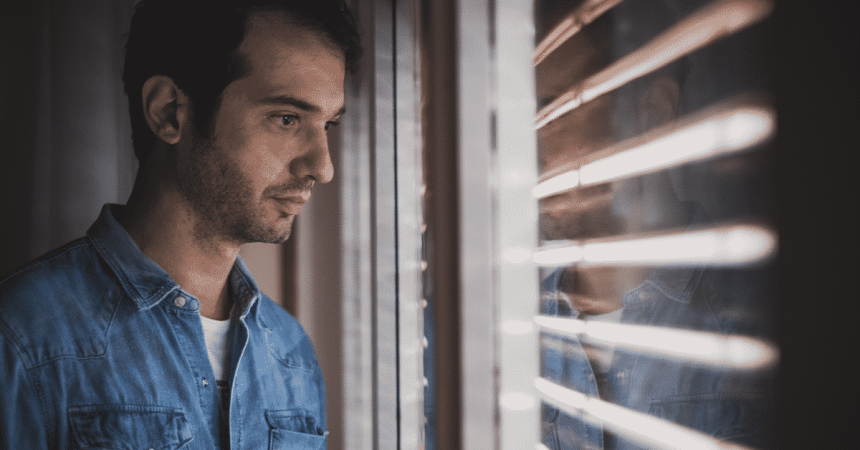Waiting in line for a show that has just sold out. Having to step into an overcrowded elevator. Running to board a packed, heated subway in the middle of rush-hour. For you, an individual who doesn’t have agoraphobia these situations are nothing out of the ordinary. However, for an individual that has agoraphobia, these everyday situations can cause overwhelming feelings: a rapid heartbeat, complete disorientation, severe anxiety and widespread panic.
Supporting an individual who suffers from agoraphobia can be difficult, especially if you do not entirely understand the mental disorder yourself. Agoraphobia is a complicated phobia; it is not linked to one element. Many people often mischaracterize agoraphobia with the fear of open spaces. It, however, is much more complicated than that.
For many individuals, the fear is not just feeling anxious or nervous; it is the panic of being placed into a situation where you would find it difficult or uncomfortable to escape. You may feel as if you are trapped, which leaves you feeling helpless. An individual can also feel an anticipated fear for a situation, for example, using:
- Public transport
- Elevators
- Waiting inline
- Shopping centres
- Crowds
- Enclosed spaces
- Leaving home in general
Agoraphobia Fact:
Medical professionals have created a correlation between agoraphobia and panic disorders/ panic attacks. The phobia is part of a biological and psychological process that goes far beyond these limits and can very often be life-changing for the individual and their loved ones.
So what causes agoraphobia?
Agoraphobia can stem from a variety of factors including, life experiences and genetic, psychological traits. The illness is more common in women with the condition usually beginning within the late teenage years; however, the condition will most likely not wholly show itself until later on in life. As stated by Mayo Clinic, biology — including health conditions and genetics — temperament, environmental stress and learning experiences may all play a role in the development of agoraphobia. There are several risk factors that have connections that can lead to agoraphobia or are associated with the disease:
- Having panic disorder or other phobias
- Responding to panic attacks with excessive fear and avoidance
- Experiencing stressful life events, such as abuse, the death of a parent or being attacked
- Having an anxious or nervous temperament
- Having a blood relative with agoraphobia
It is impossible for medical professionals to foresee an individual developing agoraphobia; there is also no way to prevent the disease. But with the right support system from loved ones, an individual who suffers from this disease can learn to live a life without restrictions.
Steps to help ease a loved one who suffers from agoraphobia
No one wants to go through life having to face the difficult challenges of agoraphobia; it can make an individual feel paralyzed within their own body. Attempting to successfully manage everyday situations while suffering from untreated agoraphobia can seriously diminish the quality of life for the individual. Without realizing it relationships, both personal and professional, can begin to suffer which will further lead the individual into a life of depression, isolation and possible substance abuse.
If you or a loved one has this debilitating mental disorder, you will want to help them. While you can’t force them to seek help or medical help themselves, there are a variety of steps you can take to support them. The first step begins with learning as much as you can about their disorder.
Educate yourself
As mentioned previously within this blog, agoraphobia is a misunderstood disorder that many do not even know about exists. One of the best ways you can help a loved one is by educating yourself of the illness they are struggling with. It will help them if you understand:
- How the disorder affects their day-to-day life
- What can trigger an attack to happen
- How the disorder affects them both physically and mentally
This will allow you to gain a sense of perspective that will enable you to be empathetic and understanding towards the individual, which can result in them feeling safe when you are around.
Learn how to be patient
Agoraphobia can often be an overwhelming and traumatic experience to deal with, especially if the individual feels as though they have to deal with the burden themselves. While you may never be able to experience what your loved goes through, you can show them that no matter how bad the attacks get, you are there with them. This simple act may seem like nothing to you, but it will mean a great deal to the individual.
Take on the mental disorder with them
An individual who has agoraphobia will have learnt the art of avoidance through experiencing such traumatic situations in the past; they know what triggers them. They will do everything in their power to not relive the past. However, coming face to face with the situations that once caused them an immense amount of emotional stress is an important step that needs to be taken to overcome those fears.
It is crucial for you NEVER to pressure an individual into situations they are not ready for. For certain individuals this may entail merely taking a step outside and standing in the sun for 2 minutes; which is a massive achievement. When the individual is prepared to take another action, they will let you know. It is, however, imperative for you to be there for them. You will need to offer as much encouragement as you can for every step that is taken.
If they do tell you they are ready but do not succeed, do not make them feel bad about the situation. Show empathy, ensure you are there for them and will be there when they are ready to take another step forward.
Always celebrate their accomplishments
No matter how small of a step was taken by an individual that has agoraphobia, a form of celebration needs to occur. Positive reinforcement will help any feel good and encourage them to push themselves further.
Depending on the type of achievement you may choose to buy them something special, cook one of their favourite meals or simply shower them with congratulations.
Ensure you check-in with them regularly
A regular planned check-in, whether that be via a text, phone call or visiting their home, can go a long way. This small gesture from yourself will reinforce with the struggling individual that they do have someone there for them.
Encourage the individual to seek professional help and treatment
Agoraphobia can be a severe mental disorder that can significantly decrease the happiness within an individual’s life. Depending on the severity of the condition it can result in the need for professional help to avoid the position becoming worse and interventions can help improve the quality of life.
Unfortunately, there is no way that we medically know how to prevent agoraphobia. While many medicines can be used to reduce the severity and frequency of attacks, the most effective treatment is teaching the individual how to function more generally with the illness rather than block it. You can learn more about the complicated disorder and the various treatment options available by visiting or contacting the Shoreline Recovery Center today.







